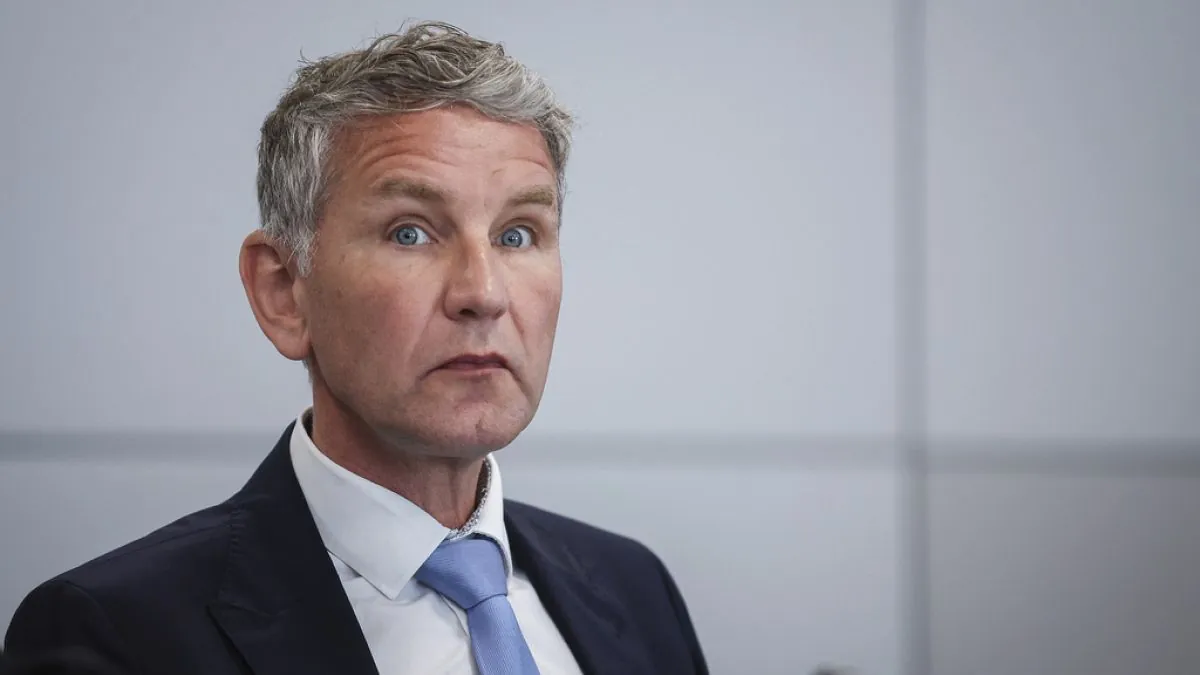AfD's Rise in Eastern Germany Sparks Concern Ahead of State Elections
AfD gains momentum in Thuringia, led by controversial figure Björn Höcke. As state elections approach, concerns grow over the party's extremist tendencies and potential impact on German democracy.

In the small town of Apolda, Thuringia, a significant political event unfolded as Björn Höcke, the Alternative für Deutschland (AfD) leader in the eastern German state, addressed a large crowd. The rally, billed as a "Familienfest," aimed to garner support for the upcoming state elections in September 2024.
Höcke's speech focused on controversial topics, including opposition to German military support for Ukraine and criticism of asylum policies. His rhetoric resonated with many attendees, highlighting the growing influence of AfD in eastern Germany.
"Domestic policy decides how we live, but foreign policy decides if we live. What is happening in German foreign policy should be questioned: this country is on the brink of war with Russia, this country is on the brink of atomic war with Russia. Friends, we as Germans, we as Thuringians, we as voters say – no more war!"
The AfD, established in 2013 as a Eurosceptic group, has evolved into a hard-Right, anti-migrant movement. Its popularity has surged, particularly in eastern Germany, where it consistently polls in second place nationwide. The party's stance on issues such as immigration and skepticism towards Russian sanctions has contributed to its appeal.
However, the AfD's rise has not been without controversy. The party is classified as a "suspected extremist group" by German security services, with its regional faction in Saxony formally labeled as extremist. Höcke himself has faced legal issues, including a conviction for using a banned Nazi-era phrase during a campaign rally.

Opposition to the AfD remains strong, with grassroots organizations like "Omas Gegen Rechts" (Grandmas Against the Right) actively campaigning against right-wing extremism. These groups draw on historical experiences to warn younger generations about the dangers of extremist ideologies.
The upcoming state elections in Thuringia hold significant implications for German politics. Polls suggest Höcke could secure 30 percent of the vote, potentially opening the door for coalition talks. However, Germany's "Brandmauer" policy, which prevents traditional parties from cooperating with the AfD, may complicate government formation.
As the political landscape evolves, new parties like the BSW, founded by Sahra Wagenknecht in January 2024, offer alternatives for voters dissatisfied with mainstream options. The BSW's left-wing economic policies combined with opposition to military support for Ukraine and concerns about mass migration could appeal to former AfD supporters.
The state elections in September 2024 are viewed as a crucial moment for German democracy. Political scientist Wiebke Maria Lohmann from Erfurt University emphasizes, "It's hugely important, we are facing a democracy crisis and history will be written on Sept 1."
As Germany approaches these pivotal elections, the rise of the AfD in eastern states like Thuringia continues to spark debate and concern about the future direction of the country's political landscape.


































